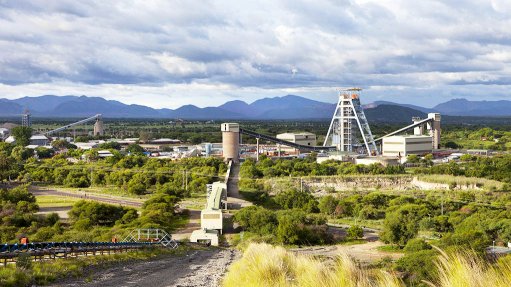78% of businesses in Africa made climate-friendly investments in past 5 years – survey
According to audit and assurance firm PwC’s twenty-eighth ‘Annual Global CEO Survey’, 78% of CEOs in sub-Saharan Africa initiated climate-friendly investments in the past five years, and are integrating climate considerations into business strategies.
While most regional CEOs reported limited to no change in costs and revenue, these climate-friendly investments are proving to be valuable in other significant ways. Enhanced brand reputation, increased customer loyalty and improved regulatory compliance are among the key benefits, says PwC South Africa chief economist and Africa sustainability leader Lullu Krugel.
This trend highlights the broader impact of sustainability efforts, demonstrating that the value of these investments extends well beyond immediate financial metrics.
Investing in climate-friendly initiatives can mitigate risks, drive innovation and unlock new revenue streams, the ‘PwC Annual Global CEO Survey: SSA perspective – Climate resilience' report shows.
The integration of sustainability into core strategies is imperative. By embracing climate-friendly investments, CEOs in sub-Saharan Africa are bolstering resilience, mitigating risks and unlocking new avenues for growth and innovation, Krugel says.
“Our latest CEO Survey highlights that their commitment to sustainability is fostering a more resilient and competitive business environment, ensuring long-term success in a changing world.”
It is not just about increasing revenues. Even if there's no immediate change in revenue or costs, investing in climate-friendly initiatives can attract further investment and financing, she notes.
These efforts also help reduce supply chain disruptions through climate risk planning and prevent potential revenue losses owing to shifting customer preferences towards more sustainable products, she adds.
By understanding and leveraging these indirect benefits, CEOs can justify their sustainability commitments to ensure long-term business resilience and competitiveness in a rapidly evolving market. These investments not only enhance operational efficiency but also position companies as leaders in sustainability.
Further, the upward shift in confidence is particularly meaningful given today's complex economic environment. It suggests that these business leaders see clear opportunities ahead, setting a positive foundation for their own business strategies and growth plans, says Krugel.
The impact of climate change in sub-Saharan Africa is particularly pronounced, affecting agriculture, water resources and overall economic stability. Despite these challenges, a significant 49% of CEOs have reported that climate-friendly initiatives have had little to no impact on their overall business costs.
However, 22% of CEOs, compared to 15% of their global counterparts, have not embarked on climate-friendly investments. The primary barriers cited include a perceived lack of demand from external stakeholders, cited by 45% of these CEOs, and the complexity of regulatory frameworks, cited by 43% of these CEOs.
“Addressing climate change requires robust government incentives and a clear and simplified regulatory environment, without which the perceived demand from stakeholders remains low, hindering significant progress,” Krugel says.
Meanwhile, sub-Saharan Africa's optimism about global economic growth is also being driven by several key factors, including declining interest rates, a downward trend in inflation, improved energy security and fuel exports.
The survey shows the significant shift as CEOs across sub-Saharan Africa increasingly prioritise climate-related risks and opportunities within their business strategies. This underscores a growing recognition that sustainable practices are essential drivers of long-term profitability and resilience, she says.
Article Enquiry
Email Article
Save Article
Feedback
To advertise email advertising@creamermedia.co.za or click here
Press Office
Announcements
What's On
Subscribe to improve your user experience...
Option 1 (equivalent of R125 a month):
Receive a weekly copy of Creamer Media's Engineering News & Mining Weekly magazine
(print copy for those in South Africa and e-magazine for those outside of South Africa)
Receive daily email newsletters
Access to full search results
Access archive of magazine back copies
Access to Projects in Progress
Access to ONE Research Report of your choice in PDF format
Option 2 (equivalent of R375 a month):
All benefits from Option 1
PLUS
Access to Creamer Media's Research Channel Africa for ALL Research Reports, in PDF format, on various industrial and mining sectors
including Electricity; Water; Energy Transition; Hydrogen; Roads, Rail and Ports; Coal; Gold; Platinum; Battery Metals; etc.
Already a subscriber?
Forgotten your password?
Receive weekly copy of Creamer Media's Engineering News & Mining Weekly magazine (print copy for those in South Africa and e-magazine for those outside of South Africa)
➕
Recieve daily email newsletters
➕
Access to full search results
➕
Access archive of magazine back copies
➕
Access to Projects in Progress
➕
Access to ONE Research Report of your choice in PDF format
RESEARCH CHANNEL AFRICA
R4500 (equivalent of R375 a month)
SUBSCRIBEAll benefits from Option 1
➕
Access to Creamer Media's Research Channel Africa for ALL Research Reports on various industrial and mining sectors, in PDF format, including on:
Electricity
➕
Water
➕
Energy Transition
➕
Hydrogen
➕
Roads, Rail and Ports
➕
Coal
➕
Gold
➕
Platinum
➕
Battery Metals
➕
etc.
Receive all benefits from Option 1 or Option 2 delivered to numerous people at your company
➕
Multiple User names and Passwords for simultaneous log-ins
➕
Intranet integration access to all in your organisation

















